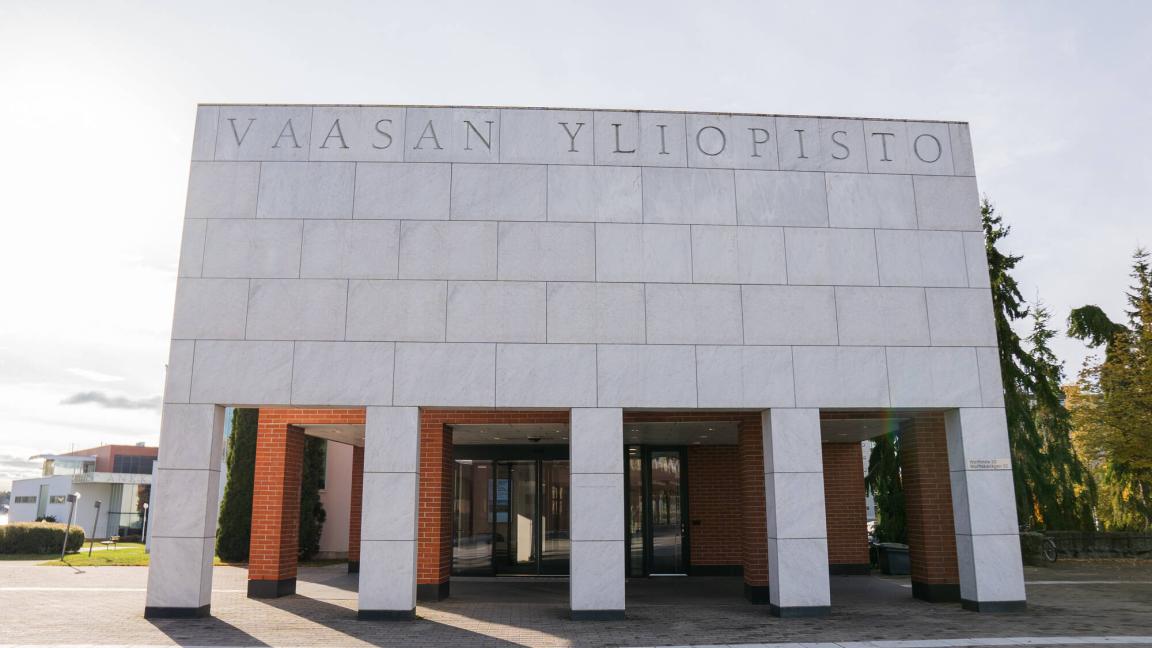University of Vaasa becomes the first in Nordics to be recognised for significant regional and societal impact
The University of Vaasa became the first higher education institution in Finland and Nordics to be awarded the prestigious BSIS label – a global recognition granted to institutions that demonstrate significant regional, societal, and academic impact. The Business School Impact System (BSIS), involves a rigorous assessment across seven dimensions of impact. To date, only around 98 institutions worldwide have received the label.
Economic impact of €254 million
According to the report, the total economic impact of the University of Vaasa on the region is €254 million. The university strengthens the region’s attractiveness and actively collaborates with local higher education institutions, companies, and authorities. Within the EnergyVaasa cluster, the university is a central actor promoting innovation and sustainable development.
– Close cooperation with the city, regional stakeholders, and the business community is a key part of the University of Vaasa’s strategy. We are deeply committed to ensuring that our research and education have real-world relevance and impact. We are the first university in Finland and Nordics to receive the BSIS label, which is a significant and interesting tool for assessing the societal impact of higher education institutions. This recognition highlights our strong connection to practice and our role as a driver of regional development, says Minna Martikainen, Rector of the University of Vaasa.
University faculty actively participate in regional boards and associations, and over 150 managers from the surrounding business ecosystem are involved in teaching and mentoring.
Students and alumni as part of regional development
The University of Vaasa acts as a strong attractor of talent to the region. 65% of the university’s students come from outside its impact zone, which includes Ostrobothnia, Central Ostrobothnia, and South Ostrobothnia. Of the graduates, 26% find employment in the region and 73% nationally. The university has around 14,000 alumni, nearly 4,000 of whom work in the Vaasa region.
The university supports regional business by offering expertise and collaboration opportunities to companies and other stakeholders. Start-up programs, such as the Startup Factory founded by higher education institutions in Vaasa, support student entrepreneurship. Strong partnerships with local businesses and associations foster innovation and entrepreneurship.
Over the past three years, the University of Vaasa has published more than 1,100 scientific articles, of which 128 were on topics concerning the region. In that same time frame there were 67 doctoral dissertations, of which 21 on topics concerning the region. Nearly ten research professorships are funded by regional stakeholders. Research is closely integrated into teaching, and key themes such as the energy transition and digital economy are reflected in the curriculum.
As a key player in the region’s EnergyVaasa cluster, the University of Vaasa is dedicated to advancing the United Nations Sustainable Development Goals (SDGs), focusing on those that align with the university’s expertise and have the greatest potential for positive societal impact. Sustainability is broadly integrated into research, teaching, and daily operations – the BSIS report lauded it as a golden thread that is fundamental to the university’s identity. The university also actively monitors and reduces its emissions, aiming for a significant reduction by 2030.
Gender equality and international diversity are also core values at the University of Vaasa. This is evident in the faculty, of which 25 % are international, and the student core, of which 11% come from abroad on the undergraduate level.
International recognition for impact
The BSIS evaluation is a tool developed by the European Foundation for Management Development (EFMD) that measures the impact of business schools on their operating environment. The certification affirms the University of Vaasa’s commitment to societal impact through academic activity, research, and collaboration.
